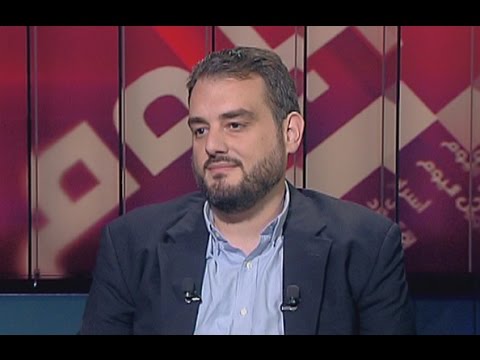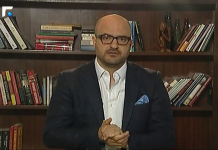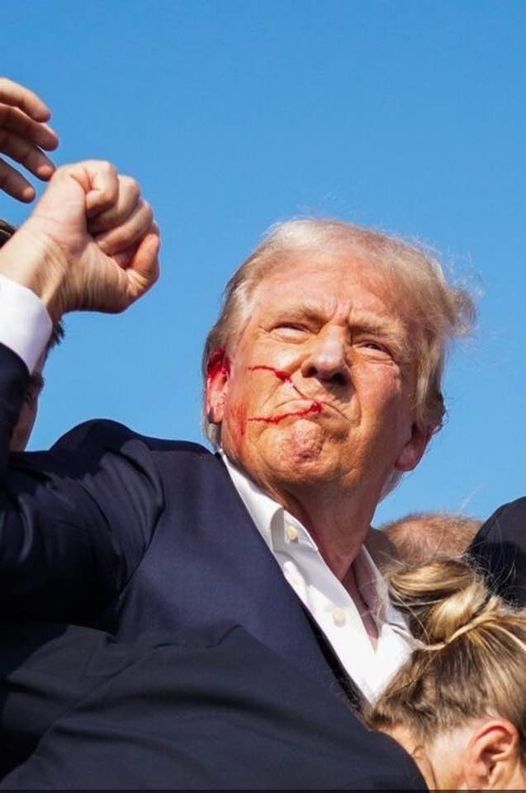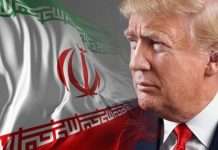Lebanon’s Sunni resurgence
Makram Rabah/Al Arabiya/May 15/18
مكرم رباح: السنة في لبنان يستعيدون نشاطهم من خلال الإنتخابات
The Lebanese Sunni community has traditionally acquired a reputation of political timidness, usually preferring to stick to mainstream politics and more often than not shy away from confrontation.
Naturally, this tendency is attributed to the fact that the Lebanese Sunnis are predominately an urban coastal community heavily invested in merchant pursuits, and thus conflict is ultimately counterproductive and destructive for their economy.
Recently, however, the Lebanese parliamentary elections revealed that this so-called Sunni sleeping giant has vehemently challenged the aforementioned paradigm. This Lebanese Sunni resurgence came at the ballot in a number of ways, but mainly took the form of abstention from voting for the main Sunni national leader Prime Minister Saad Hariri.
In Beirut’s second district, a predominately-Sunni electoral constituency, the voter turnout stood at a meager 35 percent, permitting Hezbollah and other opponents of Hariri to win five seats, with Hezbollah’s candidate being the top vote getter.
This Sunni apathy in many other areas across Lebanon was brushed aside as being very typical of earlier elections. In reality, this time around the Lebanese Sunni inaction is in fact a form of action, forcefully opposed to the alliances their leadership with President Michel Aoun, Hezbollah’s main Christian ally as well as the Hariri’s Future Movement’s below par political performance.
Like many of their compatriots, Sunnis are above all alarmed by Hezbollah’s unchecked weapons and expansion beyond the border
Steadfast support
Over the last decade, the Sunni majority have supported Saad Hariri, both as a successor to his late father as well as an ally of the wider Arab front that opposed the expansion of Iran and its operatives across the region. Even when Hezbollah and their allies toppled Hariri in 2011 and replaced him with Najib Mikati, the Sunnis did not falter in their support of their Hariri who was losing favor with his Saudi allies as well as financially struggling.
Yet, this Sunni popular and unreserved support soon petered out following Hariri’s decision to endorse Michel Aoun for presidency, a move perceived by many as reckless and ultimately solidified Hezbollah’s control over the Lebanese state.
Initially, Hariri and his advisors mistakenly believed the Sunnis, akin to other Lebanese factions, could be tamed and ultimately come to accept a wishful narrative that Aoun would slowly but surely come in from the cold, and ultimately remove the Christian cover he and his party provided to Hezbollah.
Hezbollah soon proved Hariri wrong, placing Hariri as well as the Lebanese at odds with Saudi Arabia as well as other Arab nations who were vexed with Hezbollah’s continued use of the Lebanese state to promote Iran’s regional agenda. This standoff soon triggered a crisis with Saudi Arabia that convinced Hariri to suddenly tender his resignation, and publically condemn Hezbollah’s actions.
While this chapter ended on a good note for Hariri who went back on his resignation after French President Macron good offices, it reminded the Sunnis that Hariri was no longer fully in line with the wider Arab consensus, thus placing him and his leadership in peril.
As the elections approached, Hariri banked on his personal ability to mobilize his supporters by going out to different areas across Lebanon and shaking hands and kissing babies. Amusingly, Hariri fielded “the selfie” as a weapon to get votes, going as far as to ask his media team to design and app that allow people to upload thousands of pictures that ostensibly showed the popular support to Hariri and his political choices.
These selfies however did not translate into votes, or when they did, they were not sufficient to get all of Hariri’s candidates to Parliament. Initially Hariri refused to admit to this electoral debacle and rather choose to take the moral high ground, announcing that he and his party had altruistically agreed to this new electoral law even though it was clearly disadvantageous to their interest all for the sake of national interest.
Despite his self-denial, Hariri soon responded to this Sunni resurgence and the harsh message it entailed. Over the weekend, Hariri in his capacity as head of the Future Movement issued a number of directives and punitive measures that placed senior leadership, including his own cousin and chief-of-staff, out of office.
Many took these measures simply as a response to the disappointing results and the bad performance of the party’s electoral apparatus, and part of earlier promises of inter-party reform.
Rude awakening
While these assumptions might be correct, the core reason is that this election came as a rude awakening to Hariri from the Sunnis who has supported him and his father before him, that they refuse to commit political suicide by continuing to support his current political stance.
The Sunnis consequently reject the alliance with Aoun that has led Hariri to relinquishing part of the constitutional prerogatives of the office of prime minister, the same powers that Lebanese Muslims with the Taif Accord that his late father formulated.
Like many of their compatriots, Sunnis are above all alarmed by Hezbollah’s unchecked weapons and expansion beyond the border, a fact that will surely translate into further sanctions on an already menacing Lebanese economy as well as effect the remittances of Lebanese expats in the Arab Gulf.
In the summer of 1982 and during the Israel siege of their city, the Sunnis of Beirut – while supportive of the Palestinian revolution – informed Yasser Arafat, the Chairman of the Palestinian Liberation Organization that their presence was no longer welcome, forcing the PLO to evacuate.
The recent Sunni resurgence and everything that comes with it might not be injurious for Hariri, who now has the prospect to reclaim his father’s legacy as a true cross sectarian pan-Arab leader.
Shattering the myths of Lebanese elections
Makram Rabah/The Arab Weekly/May 14/18
كسر أساطير الإنتخابات اللبنانية
The results of this supposed democratic election go beyond confirming Hezbollah’s hegemony over the Lebanese state.
Following a 9-year electoral hiatus, many Lebanese were extremely keen to cast votes in the May 6 parliamentary elections — at least it seemed so.
Much of the fuss over this supposedly routine activity was because of a new proportional election law, which, theoretically, offered voters a chance to either dislodge Lebanon’s political elite or challenge their hegemony.
However, the anticipated excitement never made it as far as Election Day. Voter turnout was about 49% nationwide, including a measly 34% in Beirut. The results, given revisions to the law and the gerrymandering that went into it, were hardly unexpected. Most of the traditional political parties retained their share of seats, although some factions gained seats in districts the previous majoritarian electoral law had barred them from representing.
The main casualty of the election was Lebanese Prime Minister Saad Hariri, who saw his Future Movement bloc reduced from 33 to 21 seats, as the distinctly underwhelming Sunni turnout allowed Hezbollah and its pro-Syrian Sunni allies to win five seats in Beirut, a traditional Hariri stronghold.
More important, Hezbollah, with its Shia ally the Amal Movement, secured most of the Shia seats in parliament and helped its allies challenge the hegemony of the Future Movement in the Sunni community.
Hariri’s electoral debacle served as a painful reminder of the bargain he struck with Lebanese President Michel Aoun and the consequent abandonment of his father’s legacy he demonstrated by turning his back on traditional allies Samir Geagea and Walid Jumblatt.
Above all, Hariri and his Future Movement failed to address key grievances of their constituency, which had sent alarming messages in the latest municipal elections by essentially boycotting the vote.
In addition to Hezbollah, the other two victorious parties were the Free Patriotic Movement led by Aoun’s son-in-law and Lebanese Foreign Minister Gebran Bassil and the Lebanese Forces. Bassil conjured up and gerrymandered districts to secure his win. The Lebanese Forces surpassed expectations with 15 seats, one of which is deep in the heart of Hezbollah-controlled area in eastern Lebanon.
Yet the results of this supposed democratic election go beyond confirming Hezbollah’s hegemony over the Lebanese state. They lay to rest some myths and misconceptions about reforming the archaic Lebanese political system.
Contrary to the expectations of the political factions, which approved this diabolical electoral law, the proportional electoral system was not well received by most of the Lebanese. For evidence, there is the appalling turnout. Realistically, Lebanese feel uneasy voting for a locked list with one preferential voting option, something that would entail them publicly endorsing one faction over the other.
Interestingly, there is something very non-Lebanese about Bassil’s law, at least from the perspective of the voters. Most Lebanese who are not affiliated to political factions, either by choice or by tradition, prefer to divide their votes between opposing candidates, allowing them to petition either side for favours as circumstances dictate. Such locked lists require that the parties running present a clear and realistic political and economic platform, something that none of those running May 6 managed to do.
Funnily enough, even if such a political programme existed, it is highly unlikely the Lebanese would even consider it, as they would rather continue voting for their traditional sectarian and tribal leadership, something that the election results confirmed. Despite the government’s campaign instructing voters how the system worked, 38,909 void ballots — a large number for an election in Lebanon — were cast, suggesting the system was too complex for ordinary electors.
Perhaps one of the most important myths that the election shattered was one campaigned on by many independent political activists: that electoral reform was key for political reform. In reality, the Lebanese electorate chose not to endorse the so-called civil society candidates, who assumed that their active social media profiles were sufficient to get them to parliament, and voted for the status quo instead.
Perhaps it is permissible to spend hours analysing and looking for reasons to justify the election results. However, what cannot be disputed is that, while they are entitled to celebrate their democratic achievement, the Lebanese have a long way to go before they can call themselves a democracy.
**Makram Rabah is a lecturer at the American University of Beirut, Department of History. He is the author of A Campus at War: Student Politics at the American University of Beirut, 1967-1975.



















